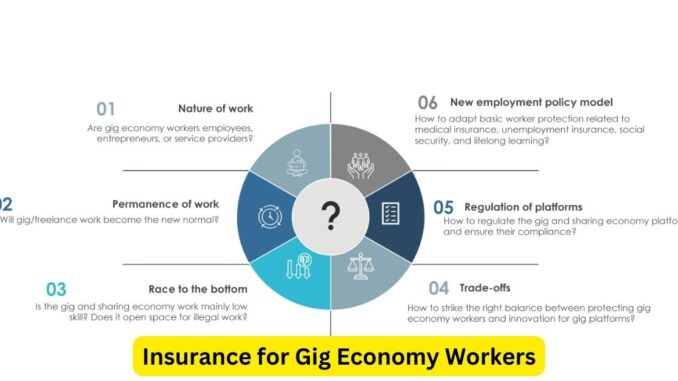
The rise of the gig economy has transformed the nature of work, offering flexibility and independence to millions of individuals worldwide. However, with this independence comes a unique set of challenges, especially concerning financial security and access to traditional employee benefits like insurance. As gig workers navigate this evolving landscape, specialized insurance solutions have emerged to protect their livelihoods.
Gig economy workers, including freelancers, independent contractors, and platform-based workers, often lack the safety nets provided by traditional employment, such as health insurance, workers’ compensation, and retirement benefits. This gap has spurred the development of tailored insurance products catering to the specific needs of these independent workers.
One of the primary concerns for gig workers is access to healthcare coverage. Without employer-sponsored health insurance, many gig workers face challenges in obtaining affordable and comprehensive medical coverage. To address this, insurers and platforms have collaborated to offer health insurance options tailored to the gig economy, providing flexible plans that suit varying income levels and working arrangements.
Additionally, gig workers are susceptible to income volatility, as their earnings may fluctuate due to varying demand or project-based work. Income protection insurance or short-term disability coverage has emerged to provide financial support during periods of illness, injury, or downtime between gigs. These policies offer a safety net, ensuring a steady income stream when unable to work.
Moreover, liability insurance has become crucial for gig workers providing services or operating businesses independently. Whether it’s ride-sharing, food delivery, or freelance consulting, liability insurance protects gig workers from potential legal and financial liabilities arising from their professional activities.
However, challenges persist in ensuring comprehensive insurance coverage for gig workers. The diverse nature of gig work makes it challenging to create standardized insurance solutions that cater to the varied needs of individuals across different industries and income levels. Striking a balance between affordability and comprehensive coverage remains a hurdle.
Additionally, awareness and accessibility are key barriers. Many gig workers may not be fully aware of the insurance options available to them or might find it cumbersome to navigate the complex landscape of insurance products tailored for their specific work arrangements.
Collaboration between insurance providers, gig platforms, and regulatory bodies is crucial to bridge these gaps. Policymakers can play a pivotal role in creating an enabling environment that encourages the development of innovative insurance solutions for gig workers while ensuring consumer protection and regulatory compliance.
In conclusion, as the gig economy continues to expand, the need for specialized insurance products tailored to the unique needs of independent workers becomes increasingly apparent. Addressing the challenges of accessibility, affordability, and awareness will be vital in ensuring that gig workers have access to the necessary insurance coverage, empowering them to pursue their independent work with confidence and security.

Leave a Reply